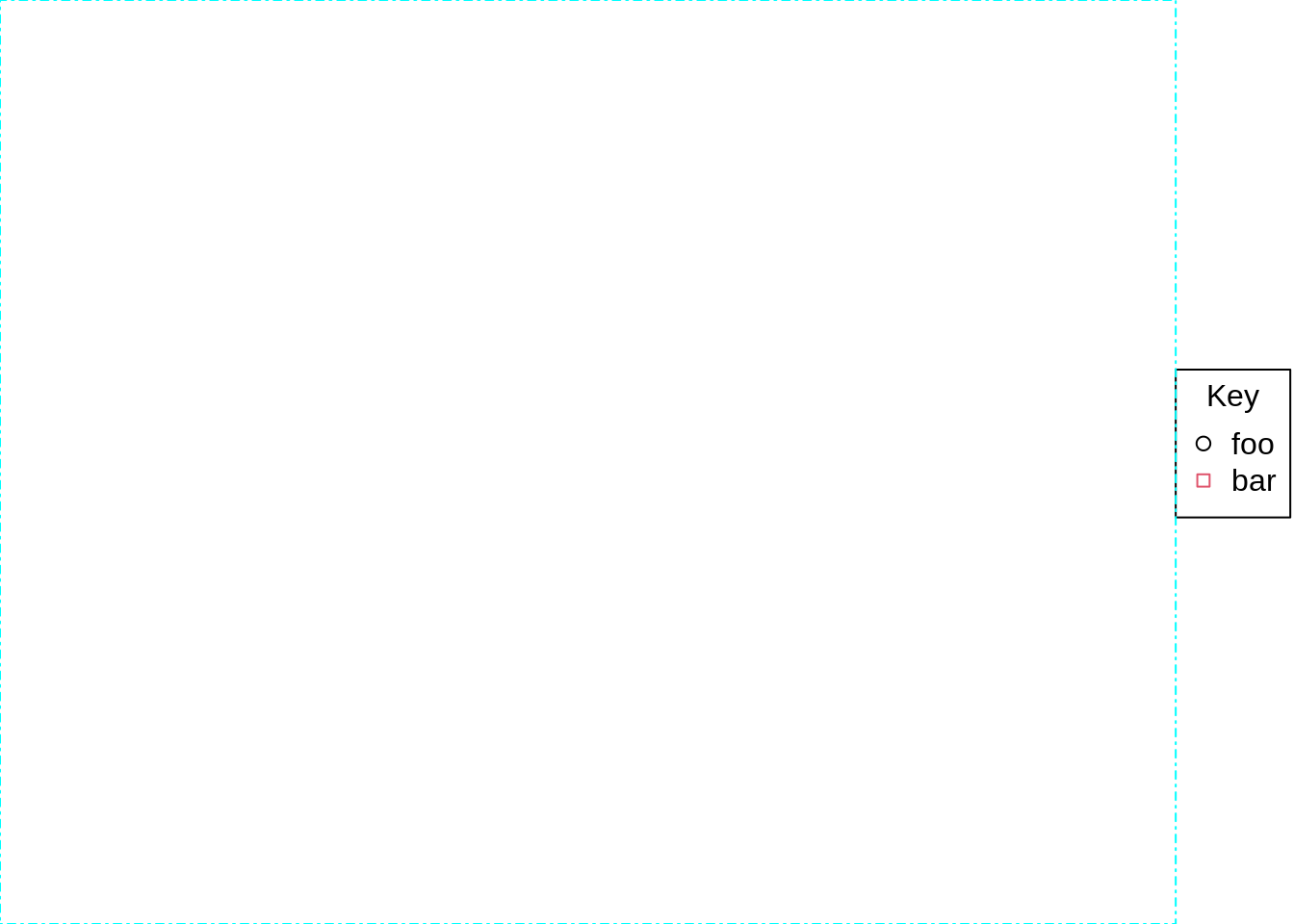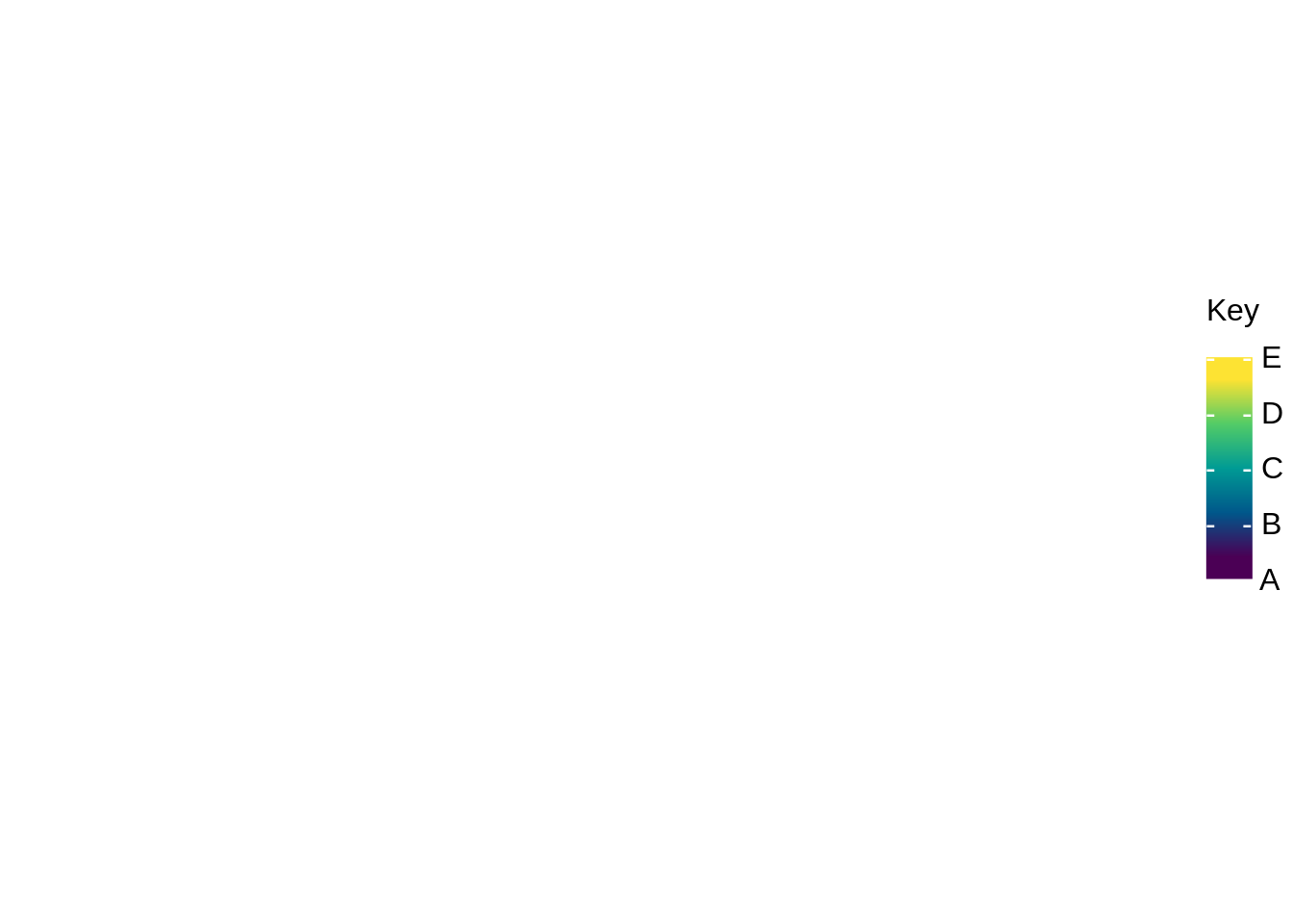legend
|
Legend placement keyword or list, passed down from tinyplot.
|
legend_args
|
Additional legend arguments to be passed to legend.
|
by_dep
|
The (deparsed) "by" grouping variable name.
|
lgnd_labs
|
The labels passed to legend(legend = …).
|
labeller
|
Character or function for formatting the labels (lgnd_labs). Passed down to tinylabel.
|
type
|
Plotting type(s), passed down from tinyplot.
|
pch
|
Plotting character(s), passed down from tinyplot.
|
lty
|
Plotting linetype(s), passed down from tinyplot.
|
lwd
|
Plotting line width(s), passed down from tinyplot.
|
col
|
Plotting colour(s), passed down from tinyplot.
|
bg
|
Plotting character background fill colour(s), passed down from tinyplot.
|
cex
|
Plotting character expansion(s), passed down from tinyplot.
|
gradient
|
Logical indicating whether a continuous gradient swatch should be used to represent the colors.
|
lmar
|
Legend margins (in lines). Should be a numeric vector of the form c(inner, outer), where the first number represents the "inner" margin between the legend and the plot, and the second number represents the "outer" margin between the legend and edge of the graphics device. If no explicit value is provided by the user, then reverts back to tpar(“lmar”) for which the default values are c(1.0, 0.1).
|
has_sub
|
Logical. Does the plot have a sub-caption. Only used if keyword position is "bottom!", in which case we need to bump the legend margin a bit further.
|
new_plot
|
Logical. Should we be calling plot.new internally?
|
draw
|
Logical. If FALSE, no legend is drawn but the sizes are returned. Note that a new (blank) plot frame will still need to be started in order to perform the calculations.
|


